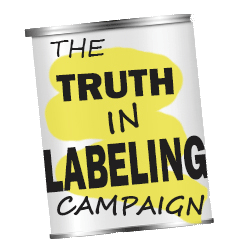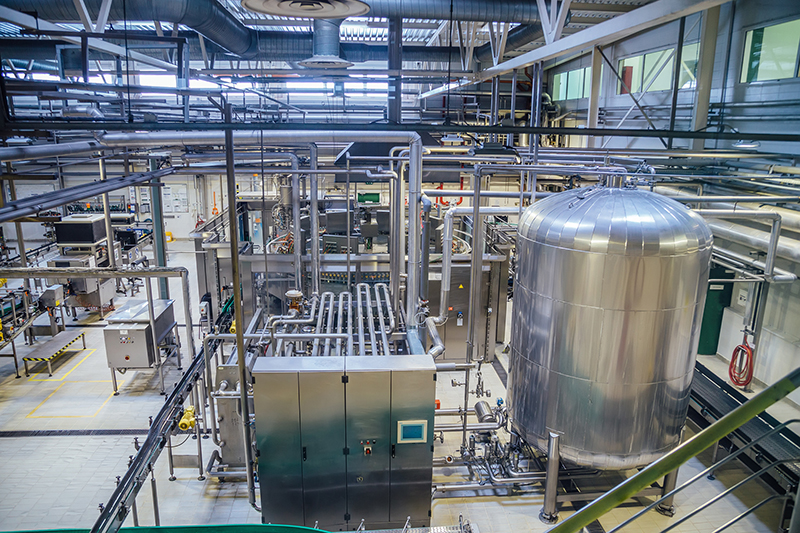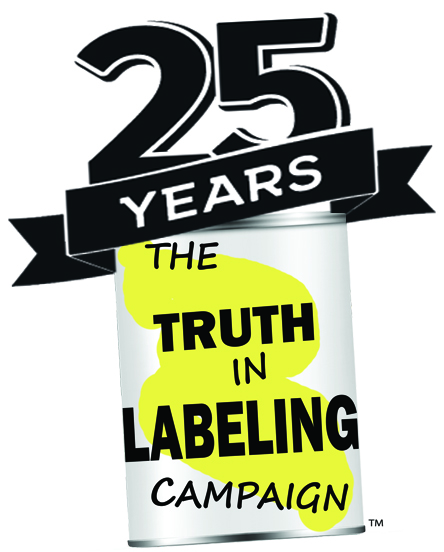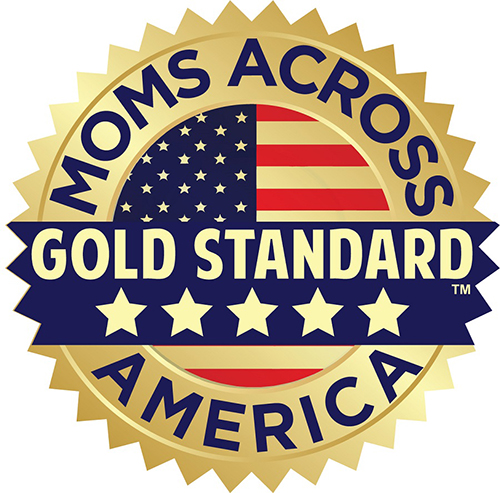In a world filled with instant information coming at you from all directions, it has become increasingly difficult to tell fact from fiction, PR from journalism and reality from advertising.
This is where the Truth in Labeling Campaign, which is marking its 25th anniversary, can make a difference.
We are a non-profit, all-volunteer organization dedicated to the complete and clear labeling of ingredients in processed foods. We don’t rent space for fancy offices or pay our officers or directors a salary. We are beholden to no organization, advertiser, PR firm, donor or university. Our small budget comes entirely from contributions from volunteers.
Since the Truth in Labeling Campaign was incorporated in 1994, we have been providing fact-based information to consumers, many of whom have been trying to unravel mysterious health problems for years. Our focus has been on glutamic acid (glutamate), the excitotoxic (brain damaging) amino acid found in monosodium glutamate (MSG), hydrolyzed proteins, autolyzed yeast, caseinates, maltodextrin, and some 40 additional ingredients used in quantity in processed foods, dietary supplements, and pharmaceuticals.
Over the past 25 years we’ve learned a lot about propaganda techniques used to benefit those who profit at the expense of human life and suffering. Ajinomoto, possibly the world’s largest producer of MSG, as well as the low-calorie sweetener known best as aspartame (or Equal), is only one among many. The cigarette, pharmaceutical, sugar, oil and chemical industries, as well as those who manufacture and sell GMOs, pesticides, and fertilizers, use similar tactics.
What we do
Our first challenge was to expose the truth, the whole truth, and nothing but the truth about MSG. But it wasn’t long before it became obvious that we had more to do than simply provide useful information to our followers. We found that there was, and still is, a large and extremely well-funded campaign purposely designed to keep consumers deceived and in the dark about the toxic effects of MSG, and the names of the many additives we’re ingesting on a daily basis that contain MSG and the excitotoxic manufactured free glutamate (or MfG) found in it.
TLC was founded by Jack Samuels, a health-care professional and his wife, Adrienne Samuels, an experimental psychologist by training, proficient in research methodology, statistics, research design and test construction – vital skills to have if you’re going to notice and unravel design flaws, detect fraudulent research and spot skewered study conclusions.
Long before either thought of putting up a web page, Adrienne was searching for answers that would help her understand Jack’s life-threatening sensitivity to MSG, which could put him into anaphylactic shock.
Finding those answers proved to be inordinately difficult, for the people to whom she was at first referred simply assured her that no one was sensitive to MSG. Richard Cristol, then executive director of Ajinomoto’s Glutamate Association, even sent her a book that he said would prove it.
The answers eventually came from individual consumers, manufacturers, food chemists, food technologists, food encyclopedias, trade magazines, people Jack met on airplanes, and above all, intuition. And over time, Jack and Adrienne found discrepancies between 1) scientific articles produced by independent scientists who found that MSG had toxic potential, and 2) claims made in seriously flawed studies by glutamate industry researchers that declared that MSG was harmless. (Details can be found at the TLC website here.)
Possibly the most flagrant violation of ethics has been use of double-blind studies wherein the number of reactions to MSG test material would be compared to those of a “placebo” containing excitotoxic amino acids. Aspartame, which contains excitotoxic aspartic acid, was the placebo material of choice, but glutamic acid in ingredients with names other than MSG were also used. Then, when subjects reacted to both test material and placebos, industry researchers claimed that was proof MSG was harmless.
The studies in question were approved by the FDA prior to their implementation.
Shortly after the Truth in Labeling Campaign was formed, it was joined by 29 doctors, researchers and parents of MSG-sensitive children, in filing a Citizen Petition asking that the FDA mandate labeling of all MfG added to processed foods.
When the Citizen Petition was denied, TLC filed a lawsuit requesting the same labeling standards. The FDA’s response was to invoke the Administrative Procedures Act, a rule allowing government agencies to refuse to disclose any evidence contained even in their own files that industry wanted withheld.
Realizing that the chances were slim to none that the hold the glutamate industry has over our “watchdog” and other regulatory agencies would ever allow potentially life-saving changes to be made in food labeling, TLC has focused on telling the public the truth, the whole truth and nothing but the truth about MSG and MfG – one person at a time if necessary.
Do you care?
Chances are somewhere down the road that you or a loved one will encounter a glutamate-associated disorder, which can range from problems such as headaches, muscle pains, asthma, attention-deficit/hyperactivity disorder (ADHD) and obsessive-compulsive disorder (OCD) to diabetes, atrial fibrillation, ischemia, trauma, seizures, stroke, Alzheimer’s disease, amyotrophic lateral sclerosis (ALS), Huntington’s disease, Parkinson’s disease, depression, multiple sclerosis, schizophrenia, epilepsy, addiction, frontotemporal dementia, autism, and even cancer.
Then there is brain damage. Glutamate (and aspartate and L-cysteine) kill brain cells — and one would not notice a few brain cells gone missing today and a few more gone missing tomorrow.
So, wouldn’t it be smart to avoid the trio of excitotoxins that are associated with those abnormalities and brain damage? It includes not only glutamate, but aspartate (found in aspartame), and L-cysteine (often used in bakery products) that are excitotoxic. The Truth in Labeling Campaign will help you to do that.
To learn more, click here for a free download of the book, It wasn’t Alzheimer’s, it was MSG, and the peer-reviewed published article The Toxicity/Safety of Processed Free Glutamic Acid (MSG): A Study in Suppression of Information.
We also invite you to visit TLC’s webpage at www.truthinlabeling.org, follow TLC on twitter (@truthlabeling), join TLC on Facebook and read our blogs.









